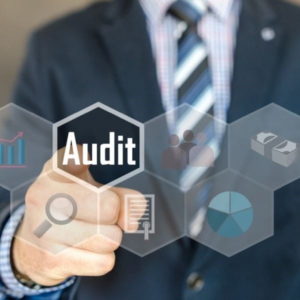No products in the cart.
Auditor Training
Showing the single result
Filters Sort results
Reset Apply
Internal Auditor Training / Distance Click the "Ask a Question" button for more details and to book. Last Updated: 08-03-2024 |
Browse a wide range of different Auditor Training in your area. Contact training organisations and book aviation training courses online with AvPay!
Auditor training, coupled with auditing an aviation business, can offer several advantages, and significantly contribute to improving flight safety. Auditor training equips and develops individuals with the knowledge and skills necessary to effectively assess an aviation business’s operations and safety practices. Trained auditors understand relevant regulations, industry standards, and auditing methodologies. Trained auditors learn to conduct audits objectively, without bias. They can critically assess safety procedures, identify areas for improvement, and offer constructive recommendations. Auditor training often includes communication skills, enabling auditors to interact with personnel, collect relevant information, and convey findings clearly and diplomatically. Auditors learn how to assess safety risks and identify potential hazards, which is crucial in evaluating an aviation business’s safety practices. Auditing ensures that the aviation business complies with aviation regulations, safety standards, and industry best practices. This includes checking that the business adheres to safety guidelines set by aviation authorities like the FAA or EASA. Auditors identify weaknesses and safety risks within the aviation business, such as non-compliance, inefficient procedures, or safety culture issues. This information is valuable for making necessary improvements. Audits assess the safety culture within the organization. A strong safety culture promotes safety awareness and adherence to safety protocols among employees. Auditors help aviation businesses develop corrective action plans to address identified weaknesses. This promotes a culture of continuous improvement in safety practices. Audits assist in allocating resources, such as personnel, funding, and equipment, to areas where safety improvements are most needed. This ensures resources are used effectively to enhance safety. Auditors can identify areas where procedures and processes should be standardized. Standardization minimizes the risk of errors or inconsistencies in operations. Audits provide data and evidence on the state of safety practices within the business. This data informs decision-making, policy changes, and resource allocation to improve safety. Aviation businesses become more accountable for their safety practices. Knowing that audits will occur encourages businesses to maintain high safety standards and adhere to regulations. Demonstrating a commitment to safety through audits can increase public confidence in the aviation business. Passengers and stakeholders are more likely to trust and support businesses that prioritize safety. Audits help ensure that the business complies with regulatory requirements, reducing the risk of penalties and sanctions for non-compliance. External audits conducted by trained auditors provide an unbiased and objective evaluation of an aviation business’s safety practices, uncovering issues that may not be apparent from within the organization. In summary, auditor training and the auditing process play a crucial role in proactively identifying safety issues, ensuring compliance with regulations, and promoting a strong safety culture within aviation businesses. By addressing weaknesses and risks, businesses can continuously improve safety measures, leading to safer operations, fewer accidents, and an improved safety record. This, in turn, enhances the reputation and success of the aviation business while contributing to overall flight safety.





